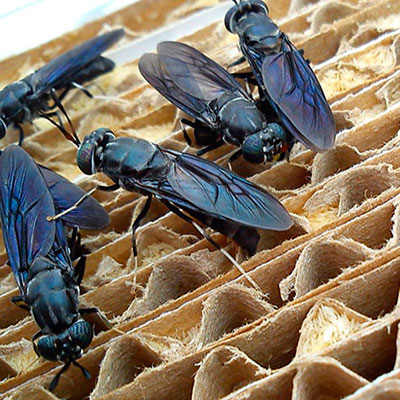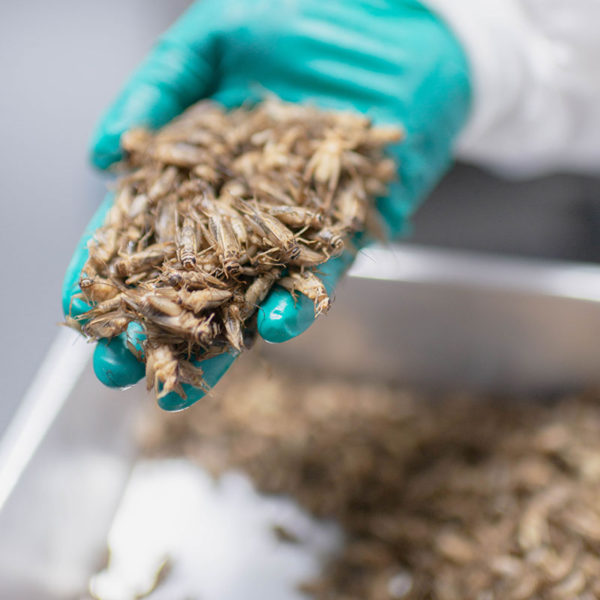Insect Industry


Why insects farms?
Protein growing demand
As the demand for protein in feed continues to surge annually, our planet faces a significant protein deficit estimated at 10–25 million tons per year. Climate changes have complicated vegetable protein production due to diminishing yields, while the depletion of water resources impacts fishmeal production. These global trends are major driving forces behind the increasing prevalence of insect farms. Among alternative solutions, insect farming emerges as a promising approach to tackle the mounting demand for protein.
А feed for animals and aquaculture
Our feed formulation includes high-quality protein and a substantial quantity of essential amino acids crucial for animals and aquaculture. This blend enhances their disease resistance and provides additional benefits, notably safety. Insects carry a remarkably low risk of transmitting zoonotic diseases.
Insects convert organic waste
Insects are crucial in converting organic waste into high-value substrates beneficial for agriculture, showcasing their pivotal role in waste management.
Ecological farming practices
Insect farms significantly outshine cattle farms in terms of ecological impact. Unlike cattle farms, significant contributors to air pollution due to carbon emissions, insect farms maintain a more sustainable and eco-friendly approach.
Rapid growth
The insect growth rate surpasses that of traditional animals. Crickets, for instance, reach maturity in just 40 days, while Black Soldier Flies achieve the same in 15 days.